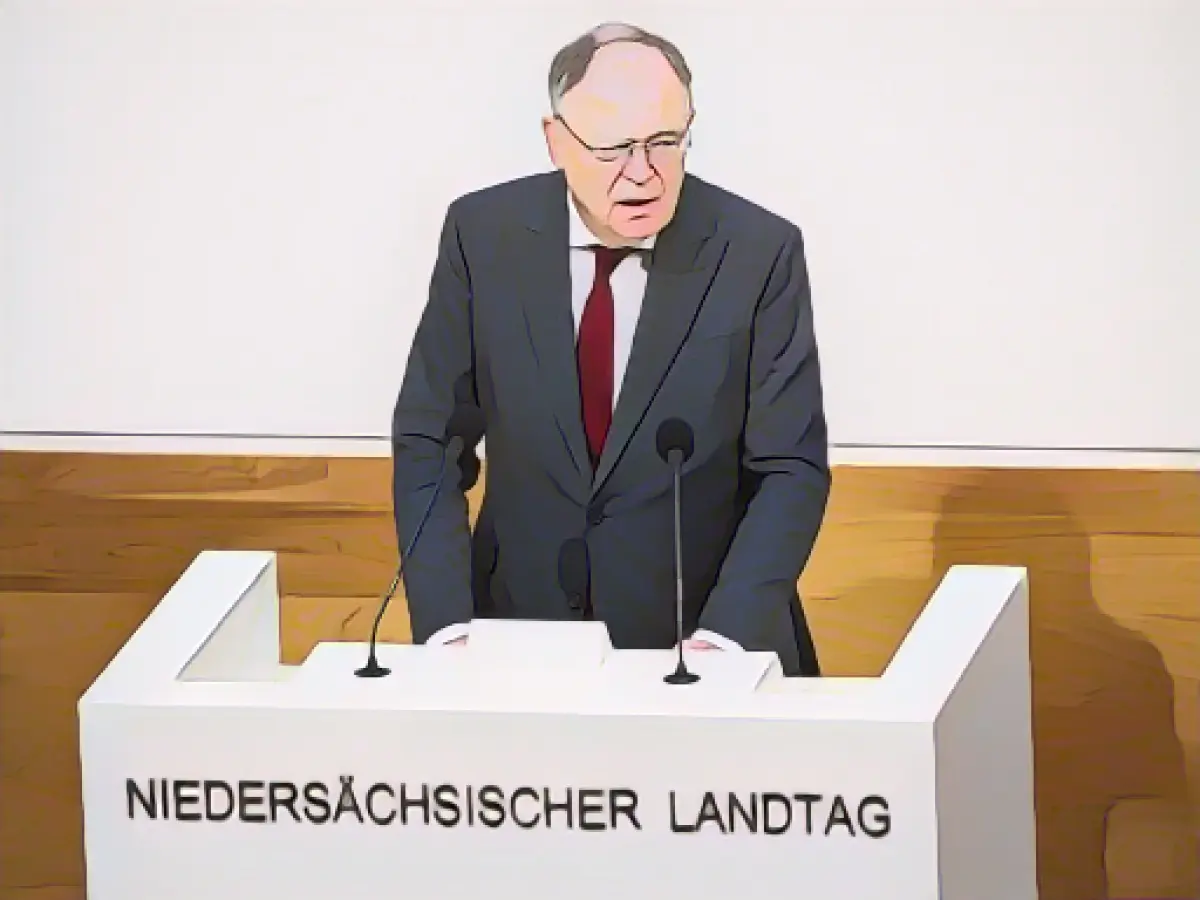After climate fund ruling: Weil warns against cuts
Following the Karlsruhe ruling on the climate fund, Lower Saxony's Minister President Stephan Weil has warned against cutting funding for companies that has already been promised. "If there is now a serious question as to whether the promised funding will actually be provided, then it will be a shambles," said the SPD politician on Wednesday at the 13th Lower Saxony Business Day in Hanover. "Trust in Germany as a business location must not be jeopardized."
Last week, the Federal Constitutional Court prohibited the use of loans amounting to 60 billion euros for the federal government's climate fund. Numerous projects to support the economy in the transformation that were to be financed from this fund are on the brink of collapse. However, Economics Minister Olaf Lies (SPD) promised on Wednesday that the funding promised by the state would continue to be secured. Weil explained that it is now crucial to set the course for the future. "We are currently in a decisive phase in which the opportunities for the future are being allocated. The claims are being distributed now. Not in ten years' time."
Andreas Jäger, President of the Lower Saxony Business Associations (UVN), which had invited guests to the event, called on the federal government to fundamentally change course in its budgetary policy. "If the federal government wants to continue to stimulate overall economic growth following the ruling of the Federal Constitutional Court, state consumer spending must also fall," he said. "When resources are tight, politicians must set priorities and explain the consequences of these decisions. Because the time when you could please everyone is over." He sees potential for savings in social spending and the federal administration, for example.
Weil also wants to keep up the pressure on the issue of energy prices for energy-intensive companies. The electricity price package announced by the federal government, which was also to be financed from the climate fund, does not go far enough here. "The majority of energy-intensive companies will not benefit from this in a way that would make them sustainable." The state government, which has long campaigned for discounted industrial electricity, will therefore continue its efforts.
At the event, more than 300 representatives from politics and business discussed the energy transition, the transformation to climate-neutral production, high energy costs and how to successfully secure Lower Saxony as an industrial location. Weil sees great potential here, particularly in the field of renewable energies. "Lower Saxony has the opportunity to become the number one energy state in Germany. If this succeeds, it would set the course for generations to come."
According to the business community, this also includes stepping up the pace of the energy transition. "Unfortunately, we are still a long way from turbo," said Bärbel Heidebroek, Chairwoman of the State Association for Renewable Energies (LEE), ahead of the event in Hanover on Wednesday. This year, 102 wind turbines with an output of 489 megawatts had been added across the state by the end of October. "Lower Saxony has never been this good. But it's a third of what we wanted," said Heidebroek.
Energy Minister Christian Meyer nevertheless believes that the state is well on the way to achieving its climate targets. The Green politician repeated his call for one new wind turbine to be erected per day in future. There are already more wind turbines in Lower Saxony today than in any other federal state.
The Employer in the industry might face challenges if the promised funding for the company, affected by the climate fund ruling, is not provided as promised. The continuation of support from the employer's Industry is crucial in maintaining trust in Germany as a business location.
Source: www.dpa.com








